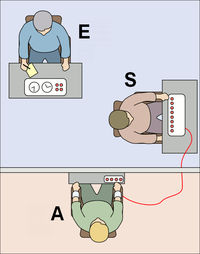How much are Kushner and the Zio-globalists infiltrating the Trump Administration?
http://davidduke.com/56872-2/
Commentary — Make no mistake, President Trump is NOT a Zionist Shill. The Jewish establishment did everything in their power to prevent his election and to block his inauguration. Now they are pushing for his impeachment, and are doing everything in their power to prevent him from wielding the power of the presidency in the meantime.
It is true, however, the President is trying to pick and choose his battles, and in the process is making concessions along the way. These are not always concessions that we are happy about, and there is every reason to feel alarm at certain developments. There is no guarantee that Donald Trump will succeed in his agenda.
We present the following article from Zero Hedge not to turn people against the President, but to report honestly on the challenges he faces so that we, who support much of his election agenda, are better able to do the work on the ground that must be done.
Lee Stranahan: ‘Ideological Coup’ By Kushner-Linked Goldman Globalists Destroying Trump White House
by ZeroPointNow
Apr 6, 2017 12:19 AM
Weeks after the Daily Mail exposed an internal struggle between Kushner-linked Goldman Sachs operatives and Trump advisor Steve Bannon, it has become clear that an “ideological coup” led by globalist bankers is well underway – claiming populist Steve Bannon as their latest victim. This ties in with Roger Stone’s warning that Trump’s son-in-law Jared Kushner has been leaking anti-Bannon information to MSNBC’s Joe Scarborough.
Well, it appears the Goldman globalists have won… for now. Wednesday evening, former Breitbart lead investigative reporter Lee Stranahan dropped an insightful Periscope video in which he laid out exactly what’s going on in the White House – pointing out who’s running the show, and imploring people to simply research the players for themselves.
In a nutshell: Weeks after meeting with Goldman Sachs CEO Lloyd Blankfein at the Four Seasons bar in DC, Jared Kushner-friendly Goldman alums have successfully maneuvered Trump’s top advisor Steve Bannon off the Natl. Security Council – further strengthening the globalist cabal’s influence over President Trump. Jared Kushner, it should be pointed out, has a well documented history of donating to Democrats; including Hillary Clinton, Chuck Schumer (D-NY), and Robert Mendez (D-NJ).
Let’s look at the ex-Goldman operators within the Trump White House:
Gary Cohn – recently Goldman’s #2, is Trump’s chief economic advisor – who was granted an unprecedented accelerated payout of $285 Million in order to go work at the White House.
- Staunch Democrat
- Huge globalist, led Goldman delegation to restructure Greek debt during financial crisis, helping them hide debt from EU overseers in Brussels.
- Head of the National Economic Council as of January 20th, 2017
- Brought in Drew Quinn – lead negotiator of TPP
Dina Habib Powell, another top Goldman alum and former president of the Goldman Sachs foundation:
- Promoted to Deputy National Security Advisor on March 15th
- Worked in the Bush II administration
- Managing director at Goldman Sachs, named partner in 2010
- Dina’s husband Richard Powell is president at Clinton-linked Teneo
- Bill Clinton is/was a Teneo advisor
- Wikileaks emails reveal a deep and profitable relationship between Teneo, Doug Band, and the Clintons
- Teneo hired Huma Abedin while she was a State Dept. employee.
Instead of draining the swamp, Goldman alums Cohn, Powell, and Treasury Secretary Mnuchin are the swamp…
The populist, nationalist agenda that Donald Trump was elected on is getting pushed out of the White house.Goldman Sachs has taken over…
The fact that Powell is in (who was in the Bush administration), as a Security advisor, is deeply troubling. She’s got Ben Rhodes’ old job.
We voted for the working people who have been taken advantage of by companies like Goldman Sachs. You’ve been screwed by Goldman Sachs. Look up TARP. You didn’t vote for Goldman Sachs.And before you say “Wait, Steve Bannon is from Goldman!” – full stop… Bannon addressed how the megabank has changed and no longer shares his values.
We did not vote for Globalism.
What can Trump voters do?
Stranahan has one request for any and all who oppose this ideological coup by Goldman Sachs: CALL THE WHITE HOUSE!
***
Shill
From Wikipedia, the free encyclopedia
This article has multiple issues. Please help improve it or discuss these issues on the talk page. (Learn how and when to remove these template messages)
|
In most uses, shill refers to someone who purposely gives onlookers, participants or "marks" the impression of an enthusiastic customer independent of the seller, marketer or con artist, for whom they are secretly working. The person or group in league with the shill relies on crowd psychology to encourage other onlookers or audience members to do business with the seller or accept the ideas they are promoting. Shills may be employed by salespeople and professional marketing campaigns. Plant and stooge more commonly refer to a person who is secretly in league with another person or outside organization while pretending to be neutral or a part of the organization in which they are planted, such as a magician's audience, a political party, or an intelligence organization (see double agent).[citation needed]
Shilling is illegal in many circumstances and in many jurisdictions[1] because of the potential for fraud and damage; however, if a shill does not place uninformed parties at a risk of loss, but merely generates "buzz," the shill's actions may be legal. For example, a person planted in an audience to laugh and applaud when desired (see claque), or to participate in on-stage activities as a "random member of the audience," is a type of legal shill.[citation needed] Shill can also be used pejoratively to describe a critic who appears either all-too-eager to heap glowing praise upon mediocre offerings, or who acts as an apologist for glaring flaws.[citation needed]
Etymology
The origin of the term "shill" is uncertain; it may be an abbreviation of "shillaber." The word originally denoted a carnival worker who pretended to be a member of the audience in an attempt to elicit interest in an attraction. Some sources trace the usage back to 1914.[2][3]Internet
In online discussion media, satisfied consumers or "innocent" parties may express specific opinions in order to further the interests of an organization in which they have an interest, such as a commercial vendor or special interest group. In academia, this is called opinion spamming.[4] Web sites can also be set up for the same purpose. For example, an employee of a company that produces a specific product might praise the product anonymously in a discussion forum or group in order to generate interest in that product, service, or group. In addition, some shills use "sock puppetry", where they sign on as one user soliciting recommendations for a specific product or service. They then sign on as a different user pretending to be a satisfied customer of a specific company.[citation needed]In some jurisdictions and circumstances, this type of activity may be illegal. In addition, reputable organizations may prohibit their employees and other interested parties (contractors, agents, etc.) from participating in public forums or discussion groups in which a conflict of interest might arise, or will at least insist that their employees and agents refrain from participating in any way that might create a conflict of interest. For example, the plastic surgery company Lifestyle Lift ordered their employees to post fake positive reviews on websites. As a result, they were sued, and ordered to pay $300,000 in damages by the New York Attorney General's office.[5]
Gambling
Both the illegal and legal gambling industries often use shills to make winning at games appear more likely than it actually is. For example, illegal three-card monte and shell-game peddlers are notorious employers of shills. These shills also often aid in cheating, disrupting the game if the mark is likely to win. In a legal casino, however, a shill is sometimes a gambler who plays using the casino's money in order to keep games (especially poker) going when there are not enough players. The title of one of Erle Stanley Gardner's mystery novels, Shills Can't Cash Chips, is derived from this type of shill. This is different from "proposition players" who are paid a salary by the casino for the same purpose, but bet with their own money.[citation needed]Marketing
See also: Astroturfing
In marketing, shills are often employed to assume the air of satisfied customers and give testimonials
to the merits of a given product. This type of shilling is illegal in
some jurisdictions but almost impossible to detect. It may be considered
a form of unjust enrichment or unfair competition, as in California's Business & Professions Code § 17200, which prohibits any "unfair or fraudulent business act or practice and unfair, deceptive, untrue or misleading advertising."[citation needed]Auctions
Shills, or "potted plants", are sometimes employed in auctions. Driving prices up with phony bids, they seek to provoke a bidding war among other participants. Often they are told by the seller precisely how high to bid, as the seller actually pays the price (to himself, of course) if the item does not sell, losing only the auction fees. Shilling has a substantially higher rate of occurrence in online auctions, where any user with multiple accounts can bid on their own items. One detailed example of this has been documented in online auctions for used cars.[6] Many online auction sites employ sophisticated (and usually secret) methods to detect collusion. The online auction site eBay forbids shilling; its rules do not allow friends or employees of a person selling an item to bid on the item,[7] even though eBay has no means to detect if a bidder is related to a seller or is in fact the seller.[citation needed]In his book Fake: Forgery, Lies, & eBay, Kenneth Walton describes how he and his cohorts placed shill bids on hundreds of eBay auctions over the course of a year. Walton and his associates were charged and convicted of fraud by the United States Attorney for their eBay shill bidding.[8]
With the proliferation of live online auctions in recent years shill bidding has become commonplace.[citation needed] Some websites allow shill bidding by participating auctioneers. These auctioneers are able to see bids placed in real time and can then place counter bids to increase the amount. One proxibid auctioneers' website states, "At the request of the auction company, this auction permits bids to be placed by the seller or on the seller's behalf, even if such bids are placed solely for the purpose of increasing the bid."[9]
The term can applied to journalists, commentators, and media outlets, who have vested interests in or associations with parties, and report in a way favorable to those interests. The term is often used by antiestablishment figures to denounce the media.
Research and experiments
The experimenter (E) orders the teacher (S), the subject of the
experiment, to give what the latter believes are painful electric shocks
to a learner (A), who is actually an actor and confederate.
The subject believes that for each wrong answer, the learner was
receiving actual electric shocks, though in reality there were no such
punishments. Being separated from the subject, the confederate set up a
tape recorder integrated with the electro-shock generator, which played
pre-recorded sounds for each shock level.
In performance art, such as DECONference (Decontamination Conference), the confederates were called "deconfederates". When a large group of DECONference attendees were asked to remove all clothing prior to entry to the event, the deconfederates, planted among the attendees, would comply immediately with the request, causing all of the others to follow the orders and disrobe as well.[10]
Interrogations
Police or military interrogators sometimes use undercover agents (called "plants") to assist with the interrogation of an individual or suspect. The plant can pose as a fellow inmate or internee, build a rapport and earn the confidence of the interviewee. The plant may subtly suggest that telling the interrogators what they want to know is the sensible or right thing to do. Even if no outright confessions are obtained, minor details and discrepancies that come out in supposedly innocent conversation can be used to chip away at the interviewee. Some plants are in reality inmates or prisoners of war who have been promised better treatment and conditions in return for helping with the interrogation; the character played by William Hurt in the film Kiss of the Spider Woman is an example of this. One notorious UK case is that of Colin Stagg, a man who was falsely accused of the murder of Rachel Nickell, in which a female police officer posed as a potential love interest to try to tempt Stagg to implicate himself.[11]Related concepts
Puppet government
Puppet, vassal, quisling, or satellite states have been routinely used in exercises of foreign policy to give weight to the arguments of the country that controls them. Examples of this include the USSR's use of its satellites in the United Nations during the Cold War. These states are also used to give the impression of legitimacy to domestic policies that are ultimately harmful to the population they control, while beneficial to the government that controls them.[citation needed]Even outside the spectrum of sovereign powers many multiparty democratic systems give foreign powers the capacity to influence political discourse through shills and pseudo sock-puppets. Thanks to the reliance of many political parties on external sources of revenue for campaigns it can be easy for a government or business to either choose which party it funds or to outright create one. This way they can either choose to support existing minority voices that echo their views or form their own, using their funds and usually semi-covert influence to make them a more prominent voice.[citation needed]
Another concept in foreign policy is seen in sovereign alliances. In these instances, an allied country acts on behalf of another's interests so that it appears that the original power does not want to get involved. This is useful in situations where there is little public support in the original country for the actions. This type of collusion is typically practiced between countries that share common goals and are capable of returning favours. An example of this may be Cuba's role during the Cold War, in sending active combat troops to wars in Africa when it was unpalatable for the USSR to do so.[citation needed]
Undercover operations
During covert operations or police investigations agents may routinely claim to be of political views or a part of an organisation in order to gain the confidence of the people they wish to surveil. Sometimes this goes further with the agents participating in acts on behalf of the organisations they infiltrate or falsely represent as was the case during the Operations like Gladio and Chaos. Often the end goal is not just to gain information about the organisation but to discredit them in the eyes of the public. However, these kinds of actions are more similar to false flag operations than typical undercover operations. In other examples, operatives may act in a manner they deem positive to assist an organisation to which they cannot have overt ties.[citation needed]See also
Lockvogel (Person)
Ein Lockvogel ist eine Person, die im Auftrag von Dienstleistern oder Produzenten im Sinne einer Interessenvertretung bestimmte Waren bewirbt, die der Konkurrenz abwertet oder andere Handlungen im Interesse des Auftraggebers ausführt, dabei aber die eigene Parteilichkeit verschweigt. Die Absicht hinter dem Einsatz basiert auf dem Ausnutzen von Mundpropaganda, dem Glauben potentieller Kunden auf authentische Empfehlungen (anderer scheinbar unbedarfter Kunden). Es ist demnach eine Form der Täuschung.Bei Auktionen
Der Begriff Gebotstreibung oder englisch shill bidding (von engl. shill: Lockvogel, Anreißer; to bid: bieten) bezeichnet die Gebotsabgabe auf Auktionen von Personen, die vorgeblich nicht mit dem Verkäufer assoziiert sind, in Wahrheit jedoch in Absprache mit diesem den Preis in die Höhe treiben.Diese Form der Preismanipulation ist besonders einfach auf Internetauktionsplattformen, wie z. B. eBay durchführbar, da hier der Anbieter selbst mit verschiedenen Identitäten agieren kann. Während dies in den Anfangszeiten noch sehr einfach war, bemühen sich die Auktionsanbieter heute mit technischen Mitteln darum, das Vertrauen der Käufer zu wahren und shill bidding zu verhindern.
Im Internet
Insbesondere in Online-Diskussionsforen, Newsgroups oder an Stellen, wo Kunden Produktempfehlungen ausgeben, werden gezielt Shills eingesetzt. Sie treten hier als unbedarfte Kunden, neutrale Experten oder anderweitig unverdächtig auf, um im Sinne einer Interessenvertretung bestimmte, meist kommerzielle Interessen der Auftraggeber zu fördern.[1] In gleicher Absicht können auch Websites eröffnet werden.Beispielsweise können Beauftragte einer Firma bei Produktempfehlungen in Online-Shops unverdächtige, positive Kommentare eines Produktes der Firma einstellen. In anderen Fällen können Konkurrenzprodukte negativ bewertet oder anderweitig abgewertet werden.
Ein Beispiel für einen Internet-Lockvogel ist Steve Milloy, dem Herausgeber von junkscience.com und Kolumnist bei FoxNews.com, der sich auf die Verbreitung verzerrter Darstellungen wissenschaftlicher Daten im Interesse bestimmter Firmen spezialisiert hat. Er stellt Dioxine, Pestizide in Nahrungsmitteln, Blei als Umweltgift, Asbest, Passivrauchen oder die globale Erwärmung als Angstmacherei und Schwindel dar.[2][3]
Im Marketing
Hierbei treten angeworbene Schauspieler als scheinbar überzeugte Kunden auf, um ein Produkt zu bewerben. Der Übergang zum Testimonial ist fließend.Im Bereich Kriminalität, Spionage und Terrorismus
Eines der bekanntesten Beispiele für den geplanten Einsatz von Lockvögeln in einem kriminellen Schema ist das Hütchenspiel.Erotische Lockvögel, die ihre Opfer später erpressten, machten sich zum Beispiel an Peter Graf und Susanne Klatten heran.
Im Geheimdienstumfeld bezeichnet ein Lockvogelangebot, auch Honigfalle genannt, die erotische Verführung einer Zielperson. Diese wird dokumentiert, um die Zielperson anschließend mit dem Material zu einer Kooperation zu bewegen oder erpressen.
Der israelische Geheimdienst entführte Mordechai Vanunu von Italien aus nach Israel, nachdem er ihn mittels Lockvogel zu einer Reise nach Rom bewegt hatte.
Die Stasi setzte gezielt Lockvögel auf Oppositionelle an, zum Beispiel auf Repräsentanten der Kirche.[4] Die Stasi schickte minderjährige Lockvögel zu Wolf Biermann.[5]
„Vor allem der sowjetische KGB arbeitet mit Lockvögeln. So machte sich eine attraktive Agentin Anfang der 60er Jahre an den damaligen französischen Botschafter in Moskau, Maurice Dejean, heran. Den britischen konservativen Abgeordneten und Geschäftsmann Anthony Courtney photographierte der KGB 1961 in einem Moskauer Hotel in eindeutiger Situation. Durch seine Beziehungen zu einer Russin wurde der Chiffrierbeamte der Botschaft von Singapur, Keng Su, zur Spionage genötigt. Im letzten Jahr [1981] versuchte der KGB den stellvertretenden amerikanischen Militärattache James R. Holbrook mit einem Mädchen zu keilen: Auf einer Besichtigungsfahrt wurde der Amerikaner, nach einer Party, mit einer Dame im Bett photographiert.“
– Der Spiegel 9/1982: Mielkes Unterschrift tut denen weh (S. 43)[6]
Rechtliche Situation
Gebotstreibung (shill bidding) ist in aller Regel verboten bzw. wird von den Auktionen vertraglich ausgeschlossen, da es die Marktsituation verzerrt.
Siehe auch: Lockspitzel







Keine Kommentare:
Kommentar veröffentlichen